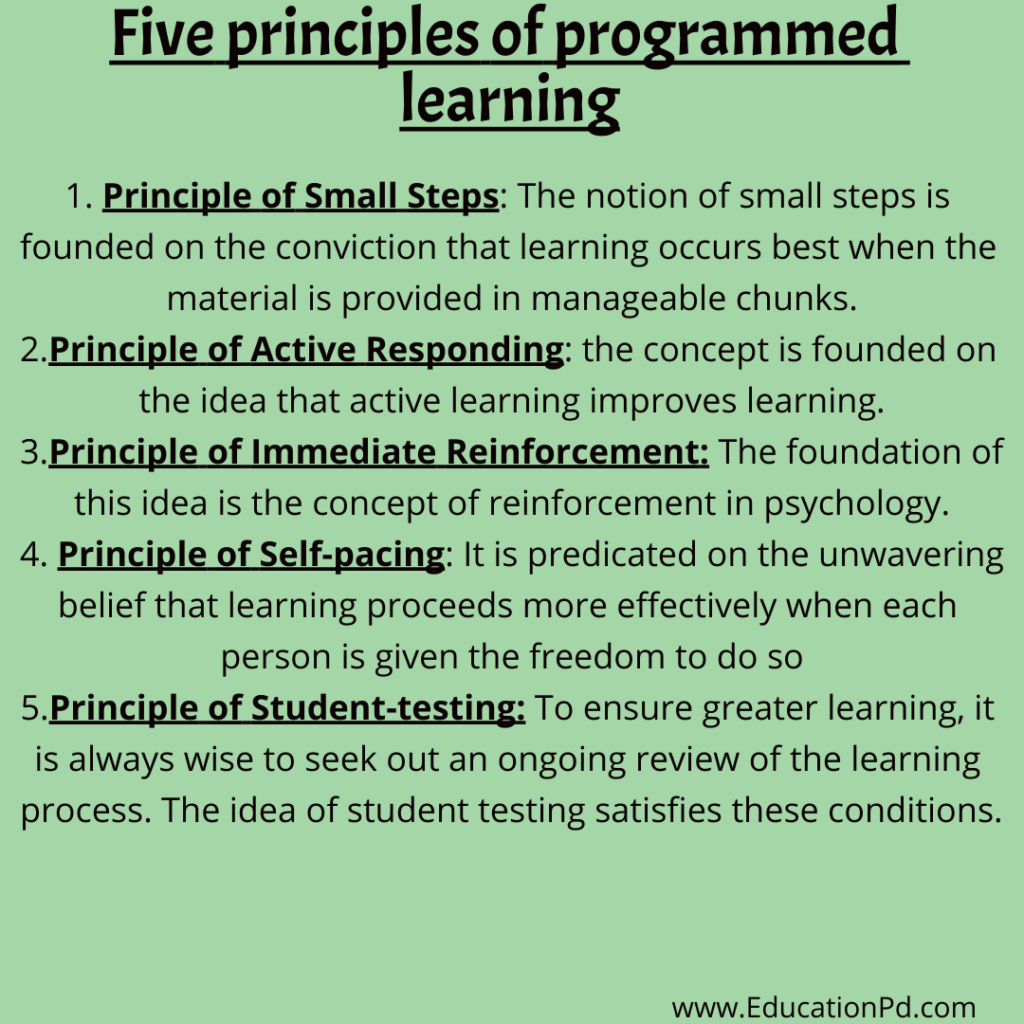Back to: Educational Technology in Education B.ed Notes, M.A Notes, IGNOU Notes
Five principles of programmed learning
Some key concepts related to an effective programmed learning approach have been established as a result of research in the field of programmed learning. The following are these guidelines:
- Principle of Small Steps: The notion of small steps is founded on the conviction that learning occurs best when the material is provided in manageable chunks. As a result, software should organise the subject matter into appropriately timed, relevant informational units called frames. Before the learner may answer, each of these portions should be provided.
- Principle of Active Responding: the concept is founded on the idea that active learning improves learning. If a student actively reacts to each frame that is provided to them during programmed learning, they are considered active learners.
- Principle of Immediate Reinforcement: The foundation of this idea is the concept of reinforcement in psychology. Learning improves when one is encouraged to learn by obtaining feedback on the response right away.
- Principle of Self-pacing: One kind of personalised training is programme learning. It is predicated on the unwavering belief that learning proceeds more effectively when each person is given the freedom to do so.
- Principle of Student-testing: The idea of student assessment forms the foundation of every effective programme of programmed learning. To ensure greater learning, it is always wise to seek out an ongoing review of the learning process. The idea of student testing satisfies these conditions.
